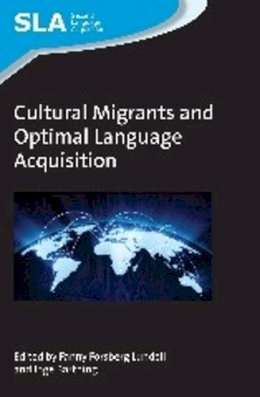
Cultural Migrants and Optimal Language Acquisition
. Ed(S): Lundell, Fanny Forsberg; Bartning, Inge
This volume investigates cultural migrants: people who, from their own free will, move to another country because of their interest in the target language and culture. Chapters include studies on cultural migrants acquiring French, Italian, Spanish and English and consider linguistic, psycholinguistic, sociolinguistic and pragmatic aspects of language acquisition. Cultural migrants have social and psychological advantages when acquiring a second language as adults, and the study of their linguistic knowledge and production increases our understanding of the possibilities and limits of L2 ultimate attainment. The work thus fills a gap in our understanding of high-level proficiency and will be of interest to researchers working in the field of SLA, as well as to social scientists studying the relationship between language, culture and integration.
Product Details
About . Ed(S): Lundell, Fanny Forsberg; Bartning, Inge
Reviews for Cultural Migrants and Optimal Language Acquisition
Alene Moyer, University of Maryland, USA This book makes a valuable contribution to the contemporary debate around native-likeness and ultimate attainment in adult second language learning, focusing on the growing body of cultural migrants. Its strength and originality lie in connecting migration studies with language learning through the interesting consideration of linguistic, psychological, and societal factors.
Carmen Muñoz, University of Barcelona, Spain This fascinating collection of papers brings together multiple perspectives on a little-known influence on adult language acquisition: cultural migration. Exploring in detail the relationship between levels of acculturation and native-like attainment in a second language, the book offers a refreshing new look at Schumann's Acculturation model.
Pauline Foster, St. Mary's University, UK Readers interested in very advanced learners and the subtle differences between advanced, near-native and native speakers of a language will be interested in the findings presented and analyzed here; useful summaries of previous research are provided, and some useful techniques for data collection and analysis presented, especially concerning the analysis of lexical and multi-word features in spoken discourse.
Heather E. Hilton, University of Lyon 2, France
Language, Interaction and Acquisition 7:2
